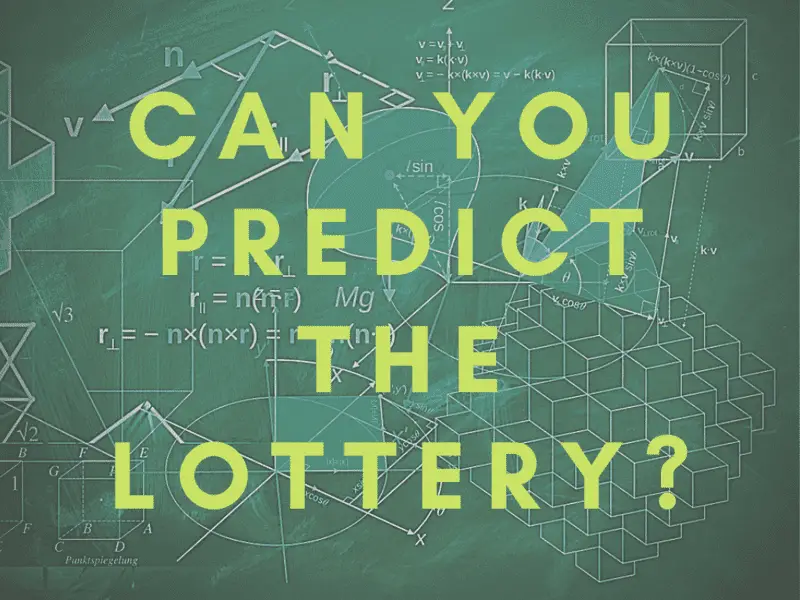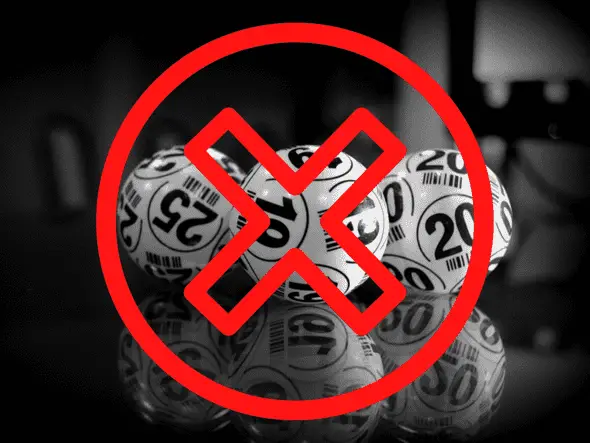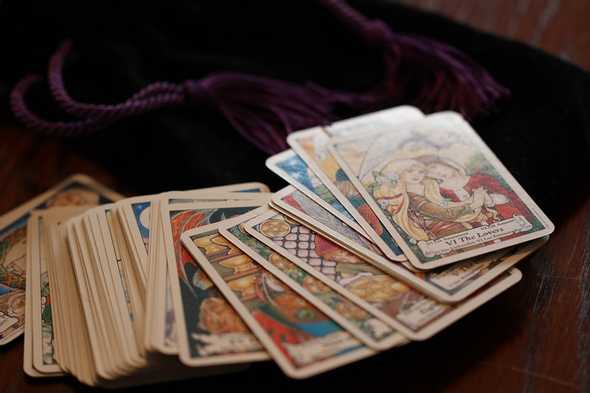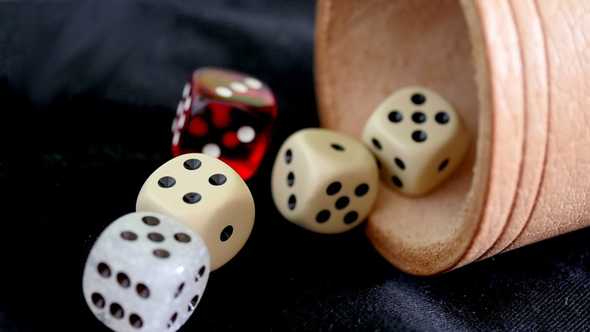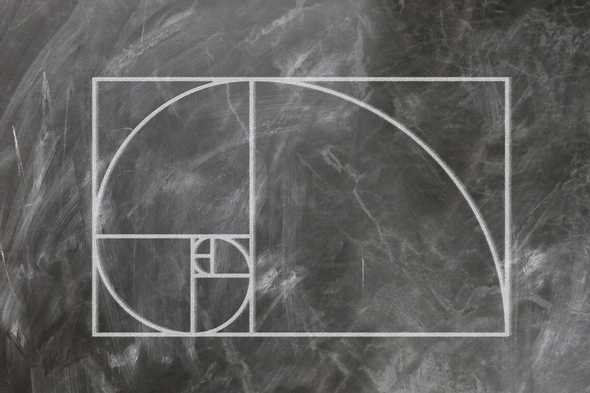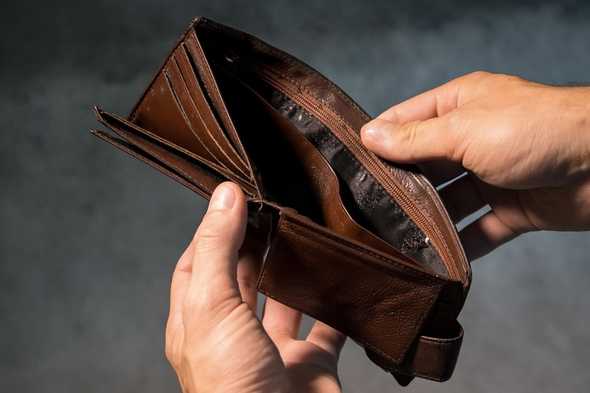Can You Predict the Lottery?
It’s the wish of everyone - pick the winning numbers to the biggest lottery ever, and retire on an island, never to have to work another day. If only there were a way to pick the right numbers every time and win multiple lotteries. Well, only one would be nice, right?
So, can you predict the lottery? No, you can’t predict the lottery. It’s not possible. Previous lottery winners claim to have predicted the lottery, but these claims are dubious and false. With trillions of number combinations, it is impossible to consistently predict which number combination will be the lucky one.
While you may not be able to predict the lottery, there are things you can do that might increase your odds of winning. Keep reading to find out how to improve your winning odds, as well as how to keep everything in perspective.
The Story of Richard Lustig
Dubbed the “luckiest man on Earth,” Richard Lustig kept winning lotteries and wrote a book outlining how he did it, sharing tips on winning the lottery. He claimed that if you don’t use the computer-generated quick pick numbers the store picks for you, and pick your numbers, you have a better chance of winning.
But is there any merit to his theories? And did he corner the lottery prediction market? Let’s find out.
Who Is Richard Lustig?
Richard Lustig came into the public eye after winning multiple lotteries. His book, "Learn How to Increase Your Chances of Winning the Lottery," spells out his strategy to readers. Many people bought the book, hoping to cash in on his tips, but to no avail. Many people were disillusioned after purchasing the book because he didn't offer real and actionable advice.He won seven large state-sponsored lotteries, with prizes totaling over $1 million. But his prizes usually came from smaller lotteries, which also increased his winning odds.
Due to how many times he won lotteries, he traveled the talk show circuit talking about his success with the lotteries and advertising his book. He was convinced that his strategy worked, but critics warned people not to take advice from him, as it was dangerous and ill-conceived.
Personal finance author Zac Bissonette led the attack against him, saying that his strategies lead people to think they could cheat the system, which might lead to becoming addicted to playing the lottery above all other obligations.
In the end, Richard insisted that his book and strategies were for entertainment purposes only. He passed away at age 67 in 2018.
The secrets of Lustig’s winning system is available on lotterywinneruniversity.com/.
His Strategy
Richard lost many lotteries before he eventually started winning. He said that he would play weekly, having the store generate his numbers. But when he stopped doing that and picked his numbers, he still lost most of the time.
Eventually, he started winning small lotteries. When things went right, he wrote down what he did. Soon, he had his “formula” and started willing the more significant lotteries. The formula later went into his book, so he claimed.
Richard’s Tips
Without delving too much into his book, let’s take a look at a few tips Richard gave people that he claimed might help them win the lottery.
- Choose your numbers rather than the store’s quick pick assignment. Richard claims that with the quick pick numbers, you get an entirely random set of numbers, decreasing your chances of winning. But when you pick your own number sets and stick with them, you increase your chances dramatically.
- Don’t change your numbers. He says that if you keep the same number sets, eventually, you will have the lucky number.
- Don’t always choose birthdays or anniversaries. If you choose your random numbers that aren’t limited to these dates, you have more chances of winning and not having to share your prize with anyone else.
- Keep playing. The odds of consistently playing will eventually work in your favor.
- Know your limits. Don’t blow the rent money or food budget just because the person down the street is buying more tickets than you are. One or two dollars, if you have it, is better than hundreds of dollars wasted.
Book Reception
His book fell flat on Amazon, as many reviews stated that his so-called “tips” can be found online and that the bulk of his book were pictures of him winning lotteries and of his family on vacations. They also claimed that he only gave three tips, all of which you can find in this article.
While he claimed to share his winning formula in his book, many complained that there was no formula. One of his tips is to buy stacks of tickets at a time to increase your odds of winning. But this advice runs counter to his other suggestion of sticking to a budget. Many people just don’t have that kind of money to spend on that many tickets.
Disappointed customers who bought the book found proof of one thing: there is no real way to predict the lottery, and there is no actual winning formula.
History of the Lottery
Lotteries have been around since the Second Millenium BC. The Chinese Han Dynasty used slips of paper that resembled keno slips today and thought to have financed the Great Wall of China. From there, other countries used forms of lotteries to fund their programs and grow their societies, as well as help their poor.
Early History
Medieval lotteries in the Netherlands and other countries nearby held lotteries to raise funds and build walls. It was a common way to raise money for other social programs and to help the poor. They became known as a ”painless taxation” form.
Later, the Italian lottery came about to pay for their war against the Republic of Venice.
Lotteries grew across much of the civilized world, but in many cases, only the very rich could afford them. Due to this, they were eventually banned in places like France for a long while. But in England, brokers would sell shares of a ticket to multiple people. If a card won, the winnings were shared amongst those who bought shares.
Original Colonies’ Lotteries
Before the United States became independent from Britain, the 13 colonies held lotteries to fund their growth and development. These lotteries funded schools, bridges, roads, and other social programs necessary to provide for its inhabitants. It started in Jamestown, Virginia, then spread to the rest of the colonies, and proved to be a great source of income.
These lotteries were held in the same fashion they were in England, as King James I authorized the colonies to hold lotteries to fund their building and growth.
However, the 1830s saw a reform from Evangelicals, as they worked to ban lotteries due to the corrupt nature. Later, as a backlash to this uprising took place, fraud and scandal became standard with lotteries. The backlash is what led legislatures to ban lotteries for many decades.
Lottery Reform
It wasn’t until the 1930s that lotteries started gaining popularity once again. Puerto Rico had the first US government-administered lottery in 1934. However, it wasn’t until 1964 that the states followed suit, with the first state to have the first state-run lottery being New Hampshire. Later, in the 1970s, scratch-off tickets became popular.
The ticket sales fund schools and other social programs in states that allow lotteries.
Not Every US State Has Lotteries
Not every state wanted to allow state lotteries, as it violated several ethical and moral codes. There are five states today that do not allow lotteries. Alabama, Alaska, Hawaii, Utah, and Nevada do not sponsor state lotteries. While the first four states cite religious and moral objections, Nevada sees lotteries as competition to their other gambling industries.
Mississippi was the latest state to legalize the lottery in 2018. They had the same objections to a state lottery as Nevada. Still, the Mississippi gaming commission finally gave in and let the state have the lottery to fund transportation and other programs.
Alabama and Utah, however, object to the lotteries based on religious and moral reasonings. Gambling is not appropriate for Christians, so they have not allowed it in their states. It may come in eventually, but for the foreseeable future, it will be banned.
How Does History Relate to Predicting the Lottery?
Lotteries are built to be fair and random so that everyone who buys a ticket has an equal chance of winning. Learning the history of lotteries shows that no matter if people predict the winning numbers, it remains impossible to do it successfully. Ever since the inception of lotteries, people have tried to win through prediction or gaming the system.
Scams and frauds have also existed alongside the lottery, as people need to win no matter the cost. People keep trying to get an edge for themselves or their loved ones by inputting code to lottery computers to others, finding non-random number patterns in certain games.
A Game of Chance
The lottery is, and always has been, a game of pure luck and chance. And games of chance are usually built around the idea that the more you play, the more you lose. Random matches are impossible to predict, because, well, they’re random. There are no consistent patterns that can easily be predicted.
Of course, there have been specific patterns that happened in the past, but those were purely coincidental. Some people claim that you cannot pick the same combination from past winners, but there isn’t any merit to this theory, as those are equally as likely to win as any other number combination.
Random events cannot be controlled, no matter how much you want that to be true. While you can predict other random events, such as a rainstorm in the summer, lotteries have too many possibilities to be controlled or predicted. Having said that, not all lotteries are the same - there are some strategies, that can increase your odds of winning.
Astronomical Combination Possibilities
What makes a lottery fair is the innumerable possibilities of number combinations that are drawn. A legitimate lottery uses at least two number picking machines to choose from, if not more. Because different devices are used every time, there is no way you could even begin to predict which numbers will come up.
There are trillions of possibilities available, and while mathematicians have calculated specific patterns, there is no real way to predict the exact number combination. You can increase your odds, however, by playing smaller lotteries. But to predict down to the correct numbers is impossible.
Can a Computer Be Programmed to Pick the Right Combination?
Supercomputers calculate massive numbers combinations daily for many reasons, so could they also be programmed to pick a winning lottery number? Unfortunately for lottery players, that type of machine doesn’t exist.
A computer would need to calculate trillions of number combinations before even coming up with the winning number. But the way lotteries are managed, and the random manner they are pulled, computers can’t calculate that in the way you would hope. Chance is built into the lotteries so that no one can predict the winning numbers.
Computers need to “learn” the data, based on repetitions and patterns, to build the algorithms it would take to generate winning number combinations. With so much chance and randomness built into the lottery, it is next to impossible for a computer to be programmed to pick the winners. You would have to run billions of tests on the program before you can even come close to predicting winning numbers.
Patterns in Lottery Numbers
Not all lotteries have been random, however. The Des Moines Register, in 2018, printed a story about identical numbers being drawn in dozens of games. Several state lotteries generated identical numbers within a few weeks or months of each other, which is not usually supposed to happen.
While the official conclusion by lottery administrators is that it was purely coincidental, critics claimed that these issues demonstrated that the lottery is less than fair. They claim that the problems were because of a lack of oversight and honesty from the administrators.
Eddie Tipton
Enter the man who gamed the system: Eddie Tipton. He hijacked the gaming system of five states - Colorado, Kansas, Oklahoma, Iowa, and Wisconsin - and won over $24 million in the process that he gave to other people. He worked for the Multi-State Lottery Association as a programmer. He inserted a two-line code in the computer system.
After testing the code over and over while alone, he managed to get his odds of winning down to 200 to 1. Eventually, he got caught trying to win the $26.5 million prize in Iowa in 2010. The reason? He bought a lottery ticket for himself, rather than for others. But he waited until the last minute to claim his prize, which went against what he claimed others shouldn’t do.
The winning ticket went unclaimed for almost a year - the timeframe in which people had to claim their prizes - until Eddie claimed it in the eleventh month. But winners cannot be anonymous when claiming their prize. So he had to give his name and address to claim the prize.
Three years later, investigators later caught up with him and discovered his scams. He was charged with two counts of felony fraud on January 15, 2015.
Rigging vs. Prediction
Eddie Tipton had the position of IT director and had access to the lottery system, making it easy for him to rig the system. That is illegal and can get a person in big trouble. But rigging the system to your favor versus predicting the numbers are two very different things.
Even rigging the system, Eddie still lost more times than he won, which shows the lottery’s randomness. Yes, what he did was wrong and got him some prison time.
Predicting the lottery is a fool’s game, and there is no reason to expect that you can.
What About Psychics?
Contrary to popular opinion, psychics cannot predict lottery numbers either. But that doesn’t stop people from turning to fortune-tellers and psychics to get a prediction. In 2011, the New York Mega Millions jackpot was up to $330 million. Psychics and fortune tellers alike tried predicting who would win. They pointed to a woman who was a Gemini, and she would have to share it with another person.
Due to those vague predictions, vendors were selling tickets at a profit of $1 million per hour.
Can Psychics Predict Winning Numbers?
As already established, the lottery is a game of chance and random outcomes. The future is not already decided, as the numbers are chosen from the machine at a specific time. Each number combination has an equal chance of being selected, so this is the reason why psychics cannot predict the winning numbers.
If something is already established, it is claimed that they can see it, such as where something is buried. But something that hasn’t been decided yet? No.
Lottery winners are just lucky, and there are no patterns to predict, no “guides” helping them win.
Past Winners Who Claimed to Predict the Lottery
There are past winners, however, who claimed that they had some “help” winning the lottery.
Carolyn O'Brien won the $3 million prize from the Connecticut lottery. She had her future read by a psychic several years prior, who told her that she had a check in her hand and exclaimed, "I did it!" Carolyn chalked up her win to the psychic's prediction.Another psychic predicted that her client, Lynn Groves, would never have to worry about money again. Later, Lynn won the lottery and then kept buying lottery tickets because her psychic told her she would keep winning.
Precise Predictions Are Impossible
Precise numbers for the lottery are impossible to predict, as mentioned previously, just like exact weather conditions, stock market numbers or other situations are impossible to predict. Psychics prefer to focus on vague images so that they get credit no matter what happens.
Mathematicians Claim to Predict the Lottery Through Math
Since the lottery is a numbers game, it would make sense that math could predict the lottery.
Probability Theory
The first math concept that will help increase your winning odd is probability. That’s just a fancy word for reducing how many people are playing the lottery versus your chance of winning. For example, if you play a smaller lottery where not as many people play, your odds are instantly better than a more popular one.
Lotteries are based on systems, such as 5/20, 5/35, and so on. The numbers correspond with how many balls are picked versus how many balls are available to choose from. With a 5/20, you have a much better chance of winning, as the odds are 1:15,503, compared to a 6/49, where the odds are 1:13,983,815.
If you want to predict the lottery, you would have a much better chance of playing the smaller lotto system.
Odd vs. Even
Another question is: what numbers are more likely to be drawn? Should you pick mostly odd numbers or even numbers?
There are specific patterns that do emerge over time with different systems. For example, if you played a 6/45 system, the chances are excellent that the winning combination will be three odd and three even numbers.
Why is that? The theory of probability here is that odd/even combinations are drawn a third more times than either all even or all odd. Therefore, you have a 33% chance of choosing the winning combination if you choose three odd and three even.
Mathematical Patterns in the Lottery
After everything you’ve read so far, you would assume that there are no patterns in the lottery. And, you’re right. However, mathematically there is a specific number of patterns that do exist. It’s just that they aren’t as predictable as you would hope.
The patterns are split into even or odd numbers, such as 1-12-20-31-39-42. So if you pick a combination pattern with three even and three odd, and you start with the lowest number first, you have a better chance at winning.
But you still cannot predict the lottery numbers. If you choose patterns, you may have a slight edge over others. You will still likely lose, though. The math system is still guesswork, and your odds of winning are very low, no matter what you do.
For Entertainment Purposes Only
While it would be nice to win the lottery and retire on some deserted island, there’s no need to take it seriously or put much thought into it. Since the odds of winning are about 1 in 300 million, there is little chance you would win.
The lottery is meant for entertainment and fun. It’s a game that you play, hoping that you win, but knowing that you won’t. But if you do, that’s great. Otherwise, you probably don’t want to put your life savings into playing a game that gives you no returns on your investment, as you will have absolutely nothing to show for it.
A better thing to do with your money is to put it into an interest-bearing savings account or CD. At least you will still have your money.
But if you’re going to play the lottery, here are a few tips to help you keep your head and your money.
Stay Within Your Budget
When making out your entertainment budget, be sure to include a category for lottery tickets. Devote a specific portion of your income to them. Stick to this budget when buying your tickets, so you don’t lose more than you budgeted to lose. If you can afford only $5 worth of tickets per month, don’t buy $40 worth of tickets.
If you stay within your budget, you won’t take away from your rent, groceries, utility bills, or other items needed for survival.
You Don’t Need to Play All the Time
While some people recommend playing the lottery weekly to increase your chances of winning, you don’t need to do that. Your odds of winning will be the same whether you play daily, weekly, or once a month.
Don’t Take It Seriously
It’s not wrong to want to play the lottery and maybe win a few dollars here and there. Everyone needs a hobby and blows off steam with their chosen form of entertainment.
But there comes a point where you cross the line from entertainment to a full-time job. If you take it so seriously where you are entirely consumed by playing the lottery, you may want to take a step back and re-evaluate your priorities. Money is needed in life to be sure, but to make the lottery so seriously as to jeopardize your health is not worth it.
Conclusion
There’s no way to predict the lottery, no matter how much you wish it to be true. Due to the randomness of the numbers, and the trillions of possible combinations, it is impossible to predict what the actual winning numbers will be unless you build a time machine and go back to tell yourself the results of the lottery drawing.
A better thing to do with your time and money is to create ways to earn a passive income over time. While you have every right to play the lottery, time wasted can become money wasted. A well-rounded plan to build wealth can be better than winning the lottery.

